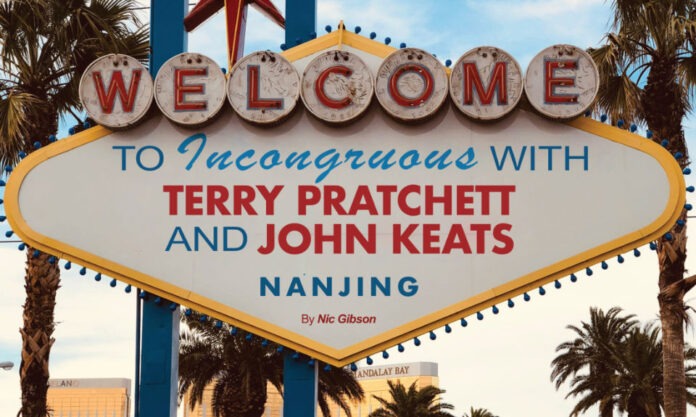
The idea of incongruity carries a bad rep. It’s right there, in the word itself. “In” often implies something ineffective, inefficient or incompatible. But the picture becomes muddier when we consider inventiveness, ingenuity and incredibility. Hold that incongruity in mind.
Humans, being pattern-seeking animals, look for connections and congruencies between things. We like to classify, to order, to line the world up in neat chunks.
The Chinese characters that combine to define “incongruous” do the same thing. “协” (xié), meaning association, harmonise, or help comes together with “调” (tiáo), meaning tune or tone. Then, by sticking the multi-purpose “不” (bù) in front of it, we get the negativity seeping through – defining something by what it is not. So is an incongruous idea inherently bad?
Let’s explore. Which of these approaches to incongruity appeals most to you?
“Faith is the final triumph over incongruity, the final assertion of the meaningfulness of existence.” Reinhold Niebuhr
“Ingenuity and incongruity always cheer me up.” Terry Pratchett
For me, the choice is easy. I would always pick the laid-back approach of the second over the solemn seriousness of the first. Of course, it helps a lot being familiar with Terry Pratchett’s comedy stylings in his “Discworld” and “Good Omens” novels, and only learning of Reinhold Niebuhr’s serious theological philosophy much more of late. It is, after all, a writer’s prerogative to load the dice in their favour!
Being an incurable atheist helps too. In my view, the “meaningfulness of existence” just doesn’t wash – it’s hard to agree there is a divine order to life with the sheer random chaos that is living day to day, a feeling incomparably strengthened when you learn the number of “make-up days” the regional government has announced after a Chinese public holiday.
Genuinely, though, embracing the incongruities of everyday life seems to make more sense than asserting an order, through faith, without evidence.
When you break it down, what could be more incongruous than that?
My research and abstract musings on the congruent (or not) nature of life also led me to the idea of negative capability: a writer’s ability, “which Shakespeare possessed so enormously,” to accept “uncertainties, mysteries, doubts, without any irritable reaching after fact and reason”, according to English poet John Keats who first used the term in an 1817 letter.
For Keats, being open minded and not always striving for a sure answer is more important than certainty. This is perhaps best exemplified in his famous “Ode on a Grecian Urn”, where he states “‘Beauty is truth, truth beauty’—that is all / Ye know on earth, and all ye need to know.”
Or is it? Is Keats telling us to stop searching for more and live in the aesthetic, or to keep our minds open and see truth in beauty without trying to classify it into something cold and scientific?
This circulatory, ambling thought process is expressed in Chinese poetry too. Modern Chinese poet 北岛 (Bei Dao) writes in “The Taste of Rain” (雨的味道):
《我说这不是雨的味道,这是土地的味道。》
I say this isn’t the taste of rain, it’s the taste of earth.
《这雨水滋润着大地,我说这是世界的气息。》
This rainwater nourishes the earth, I say this is the breath of the world.
《他们不懂,我说的是悲伤,是幸福。》
They don’t understand, what I’m saying is sadness, is happiness.
《我说的是远方,是过去,是希望。》
What I’m saying is distance, is the past, is hope.
《他们听见的只是雨的声音,雨的味道。》
What they hear is only the sound of rain, the taste of rain.
Something that “is sadness, is happiness”? “Is distance, is the past, is hope”? Drawing two contradictions together seems a favourite trick of these poet-y types! Perhaps they hope us to reflect on the passing of time, on the fleeting nature of experience, on the shifting sands beneath our meaning-making minds.
Or perhaps we could enjoy a more concrete example of something being out of tune with its surroundings: Las Vegas. Russian-American author Maria Konnikova made it real when she said “Las Vegas shouldn’t exist. The incongruity hits you from the moment you first glimpse it from the airplane. First mountains, then desert, then neat squares of identical houses that look as if they were plucked straight from Monopoly.”
Our whirlwind tour of the inconsistencies in the human experience here hence comes to an end; feelings of disorientation to be expected!

